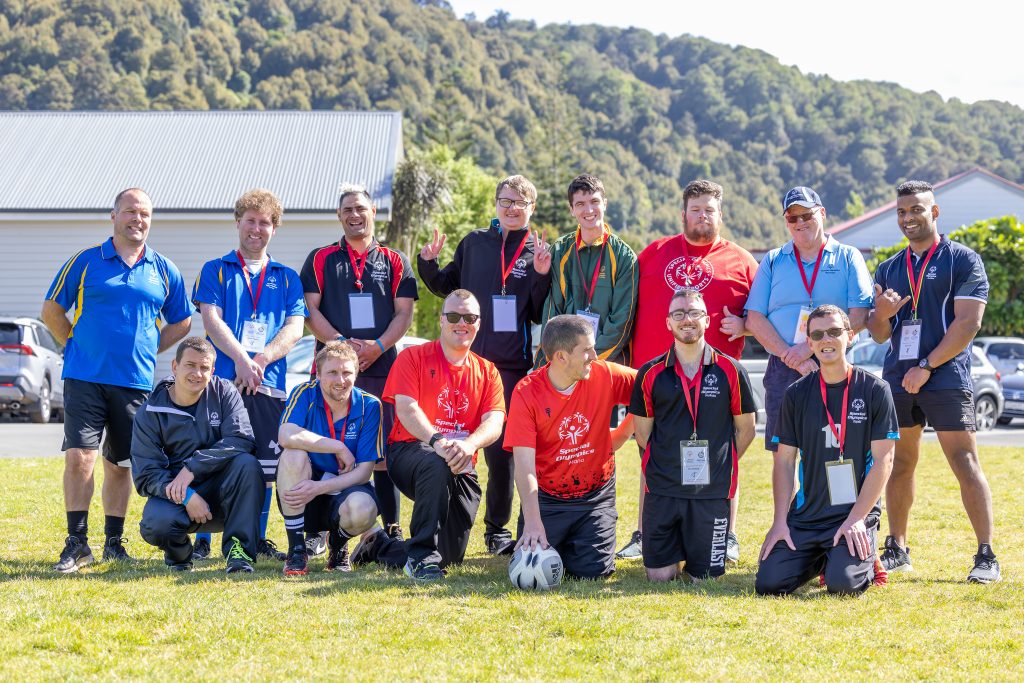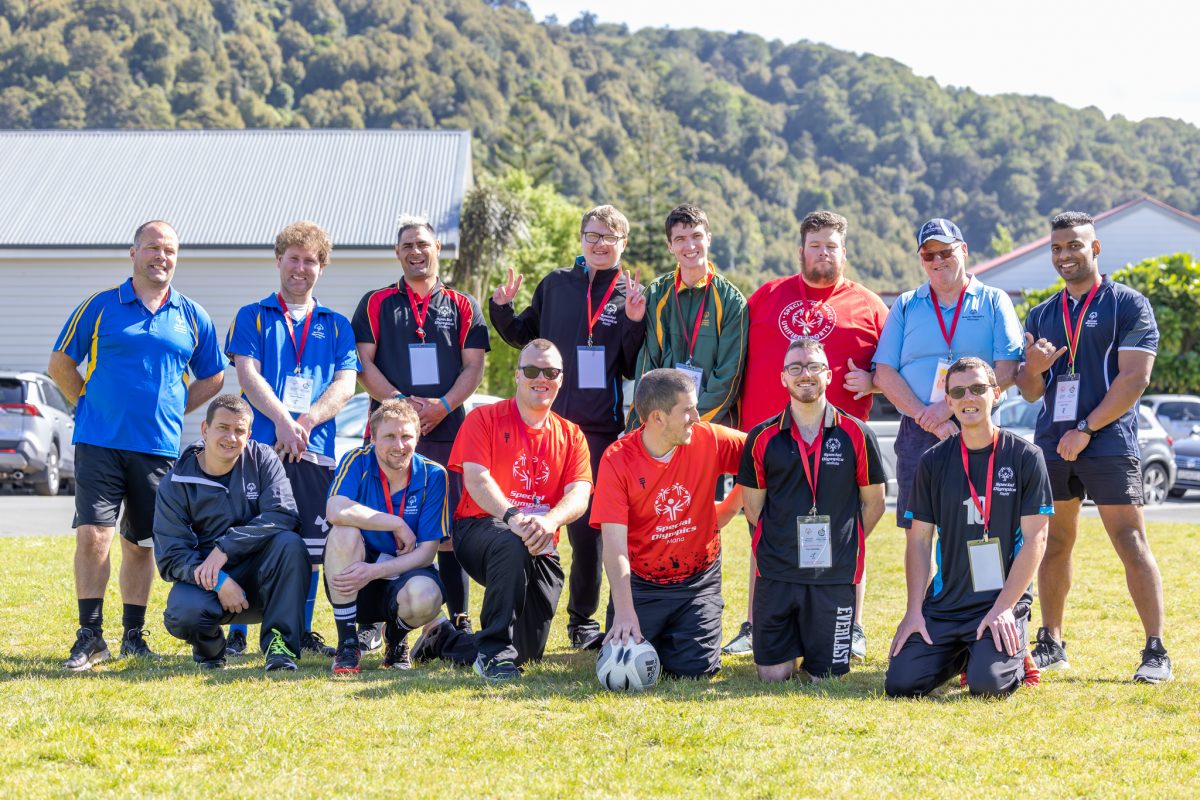The New Zealand’s football team is planning an all-out attack strategy at the Special Olympics World Summer Games in Berlin where they will take on the global elite, from June 17-25.
Over 7000 athletes from over 190 countries will compete across 26 sports in the world’s largest inclusive sports event, the pinnacle competition for athletes with an intellectual disability.
Head Coach Matt Woodason, from Otago, says the New Zealand footballers are a bit nervous about playing against global powerhouses like Germany and Brazil, but he has been impressed with the quality of his players and is confident they can cause a few upsets.
“Looking at our squad, it looks like Todd (Neal, Hutt Valley) will be in goal and the rest all want to be strikers, so we may need to have a chat with the boys that we need to do a bit of defending against some of those big teams,” laughs Woodason, who got asked to help out his local Special Olympics club 13 years ago and like many volunteers got hooked.
The football competition in Berlin will be played in and around the famous Olympiastadion, constructed for the 1936 Olympic Games, and the scene of the legendary 2006 FIFA World Cup final between Italy and France.
The Olympiastadion will also host the sold-out opening ceremony with nearly 80,000 fans welcoming the teams to Berlin.
“Of course we hope to play in the main stadium, but we are still waiting for the final schedule and opponents,” says Woodason, who explains that the first four days of competition will be used for grading to determine the divisions each country will end up competing in for the medals.
Whatever the outcome of the tournament, the New Zealand team will be making history as the first football team only comprising of Special Olympics footballers to compete in the 7-a-side event. In previous World Games, New Zealand competed in the Unified Football competition, which also included players without an intellectual disability.
“Of course we are going to there to win, but I have told the boys that our first aim is to score a goal,” says the coach, who has been preparing a team scattered all over the country.
“As we only have a couple of training camps, it will be hard to work on their skills, so we have been focusing on moulding a team and talk about not having any regrets. As long as our guys give it 100%, it doesn’t really matter where we finish,” says Woodason, who promised the team unlimited fizzy on the plane home if they win a medal.
Many of the New Zealand team have paid employment and have been very busy saving and fundraising to pay the $18,000 each athlete needs to contribute towards travel, accommodation, training camps and support staff.
Special Olympics New Zealand does not receive any Government funding like other sports organisations, so athletes like Otago’s Sheamus Neilson managed to raise the entire sum by himself.
“He works at Farmlands and they have been terrific and chipped in $5000 to help Sheamus get to Berlin,” says Woodason.
The 11-strong football team will be nearly a third of the New Zealand squad of 39 athletes, supported by 22 coaches and volunteers, who will leave for Germany on June 7 for a pre-tournament training camp near Munich.

New Zealand Special Olympics Football squad: Conor McCarthy, Todd Neal (Hutt Valley), Louis Edwards, Cole Bailey (Kapiti), JP Roux (Auckland), Finn McNally, Kyle Scandlyn (Waikato), Ash Coley, Connor Spinks (Mana), Shane Hewitt and Sheamus Hewitt (Otago). Coaches: Matt Woodason (Otago), Bruce Neal (Hutt Valley) and Ryan Ziad (Auckland)
